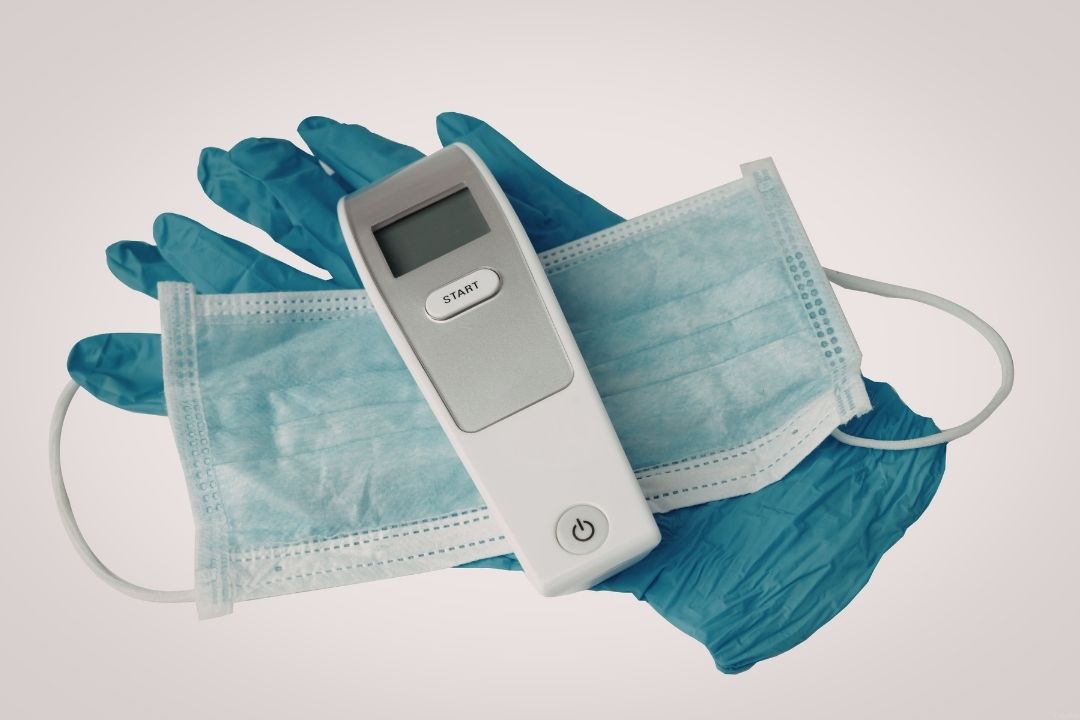
Clinical directors are the unsung heroes who bridge the gap between high-level administration and hands-on patient care. As nurses and healthcare professionals, understanding the role of a clinical director is not only beneficial for workplace collaboration—it can also open the door to new leadership opportunities.
Whether you're a seasoned RN considering your next step or a healthcare worker curious about leadership dynamics, this guide explores everything you need to know about clinical directors—from their daily duties to the path that leads to the role.
What is a clinical director?
A clinical director is a senior-level healthcare leader responsible for overseeing the delivery of clinical services and ensuring that patient care standards are met across a department or facility. They serve as both an administrative authority and a clinical resource, guiding healthcare teams toward operational excellence.
Unlike a medical director, who is often a physician focused on clinical outcomes and compliance, a clinical director usually has a broader operational role. Clinical directors manage personnel, workflows, budgets, compliance, and strategic planning for their departments.
You’ll find clinical directors in hospitals, outpatient clinics, rehabilitation centers, behavioral health organizations, and long-term care facilities. Their job description varies depending on the healthcare setting, but their goal remains the same: to ensure safe, efficient, and high-quality care.
Key responsibilities of a clinical director
The clinical director role is multifaceted and combines elements of clinical expertise, operational leadership, and strategic planning. Here are some core responsibilities:
1. Managing patient care standards
Clinical directors ensure care protocols align with best practices, regulatory requirements, and patient safety guidelines. They work closely with staff to standardize care delivery across the board.
2. Supervising and supporting staff
They oversee the clinical team, which may include nurses, therapists, social workers, and allied health professionals. From hiring to performance evaluations and mentorship, staff management is a core component of their job.
3. Overseeing compliance and quality assurance
Clinical directors are responsible for ensuring their departments meet internal policies and external regulations, including those from the Joint Commission, CMS, and HIPAA.
4. Managing budgets and resources
While not accountants, clinical directors play a key role in financial planning. They allocate resources, control costs, and advocate for department needs.
5. Collaborating with cross-functional teams
They work with administrators, physicians, department heads, and external partners to align clinical operations with organizational goals.
6. Handling conflicts and developing teams
From resolving interpersonal conflicts to leading change initiatives, clinical directors guide their teams through challenges while fostering professional growth.
Skills and qualifications required for the role
Becoming a clinical director requires more than clinical expertise—it takes strong leadership and business acumen. Here’s what’s commonly expected:
Clinical background
Most clinical directors begin their careers as RNs, therapists, or physicians. A solid foundation in direct patient care is essential for credibility and decision-making.
Leadership experience
Supervisory roles such as nurse manager, charge nurse, or unit coordinator help build the leadership skills needed to manage teams and departments.
Advanced education
A bachelor’s degree is the minimum requirement, but many clinical directors hold a Master of Science in Nursing (MSN), Master of Healthcare Administration (MHA), or Master of Business Administration (MBA).
Certifications
Relevant certifications like Certified Professional in Healthcare Quality (CPHQ), Nurse Executive-Board Certified (NE-BC), or Certified in Executive Nursing Practice (CENP) enhance leadership credibility.
Soft skills
Critical thinking, problem-solving, communication, and emotional intelligence are indispensable traits for this role.
Career path: How to become a clinical director
If you’re a nurse or healthcare worker interested in stepping into leadership, becoming a clinical director is a realistic and rewarding goal. Here's how to get there:
Start with strong clinical experience
Build a track record in patient care, especially in environments that emphasize collaboration and efficiency.
Take on leadership roles early
Volunteer for supervisory duties, quality improvement projects, or mentoring programs to develop your leadership skills.
Pursue advanced education
Consider enrolling in an MSN, MHA, or MBA program with a focus on healthcare leadership. Many programs offer flexible formats for working professionals.
Seek out mentorship
Find a mentor in a leadership position who can offer guidance, open doors, and help you navigate the transition from clinical to administrative roles.
Build your resume with certifications
Professional certifications demonstrate your commitment to excellence and can distinguish you from other candidates.
Where clinical directors work
The clinical director position exists across many types of healthcare organizations. Some common workplaces include:
- Hospitals: Large departments like surgery, emergency, or critical care often have dedicated clinical directors.
- Outpatient clinics: Specialty practices and urgent care centers need leaders to manage teams and streamline operations.
- Rehabilitation and behavioral health centers: In mental health and substance abuse settings, clinical directors play a pivotal role in coordinating care.
- Long-term care and skilled nursing facilities: These settings require close oversight to ensure compliance, staffing efficiency, and resident satisfaction.
- Home health and hospice: Clinical directors oversee care coordination, clinical outcomes, and patient transitions.
Clinical director vs. nursing director vs. medical director
These three roles often intersect in healthcare leadership but differ in their primary responsibilities and backgrounds.
A clinical director typically comes from a clinical background, such as nursing or therapy, and takes on a broad operational role. They are responsible for supervising staff, managing departmental operations, ensuring compliance, and aligning clinical services with organizational goals.
A nursing director, on the other hand, focuses specifically on the nursing staff. Their responsibilities center around developing nursing protocols, managing nurse education and training, and ensuring quality nursing care throughout the facility. They generally report to or collaborate closely with the clinical director.
Meanwhile, a medical director is almost always a licensed physician. Their role is more focused on overseeing the medical aspects of care, including treatment protocols, diagnostic standards, and coordination among physicians. They work to ensure that medical services meet professional standards and that patient diagnoses and treatments are clinically appropriate.
Each of these positions plays a vital leadership role, and many nurses with leadership aspirations can transition into one of these roles depending on their background and goals.
Challenges clinical directors face
Clinical directors operate at the intersection of care delivery and administrative strategy. This comes with unique challenges:
Staffing shortages
Managing schedules and retaining staff in an industry plagued by turnover and burnout is no easy feat.
Balancing budgets with care quality
Clinical directors must advocate for resources while working within financial constraints.
Adapting to change
Whether it's new technologies, changing healthcare regulations, or shifting patient needs, adaptability is key.
Maintaining morale and team cohesion
Leadership requires emotional intelligence to navigate interpersonal dynamics, resolve conflicts, and keep morale high.
Why clinical directors are essential to healthcare success
Healthcare organizations thrive when clinical operations are both efficient and compassionate. Clinical directors are essential in achieving this balance.
- They ensure clinical consistency across staff and shifts.
- They drive quality improvement initiatives that enhance patient outcomes.
- They provide support and leadership to frontline staff, empowering teams to perform their best.
- They act as a liaison between administration and clinical teams, promoting alignment and transparency.
Simply put, clinical directors are the engines that keep the care machine running smoothly.
Is the clinical director role right for you?
If you're a nurse or healthcare professional thinking about leadership, ask yourself:
- Do I enjoy mentoring and supporting others?
- Am I confident in making high-level decisions?
- Can I balance clinical insight with administrative strategy?
- Do I thrive in fast-paced, multifaceted environments?
- Am I committed to lifelong learning and professional growth?
If you answered yes to most of these, the clinical director path might be a perfect fit. The clinical director is a pivotal figure in today’s healthcare landscape. Equal parts strategist, leader, and clinician, they ensure that patient care remains safe, effective, and compassionate—while also meeting the ever-growing demands of a modern healthcare system.
For nurses and healthcare professionals with a passion for leadership, becoming a clinical director offers the opportunity to make a meaningful impact on both team dynamics and patient outcomes.
Whether you’re just starting to consider a leadership role or are already on the path, understanding the role of a clinical director can inspire your next professional move—and perhaps even shape the future of healthcare itself.





